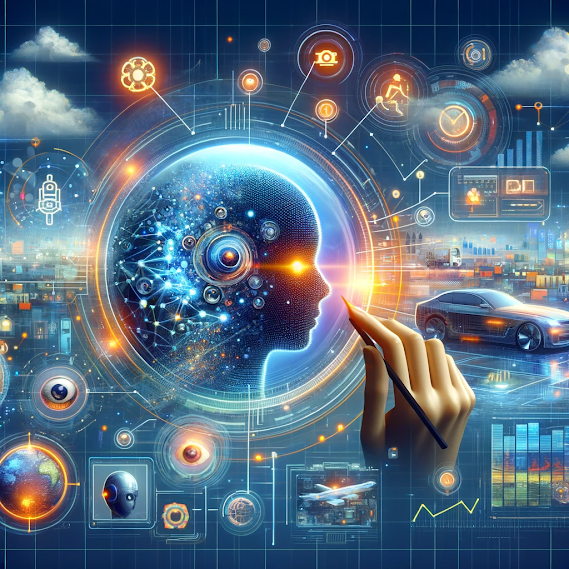📈 Transforming Lives and Empowering Communities with AI Integration🌍
📈 Transforming Lives and Empowering Communities with AI Integration🌍
In an era marked by rapid technological advancements and shifting economic landscapes, the concept of economic inclusion has emerged as a pivotal goal for societies striving toward greater equity and prosperity. At its core, economic inclusion signifies a scenario where individuals not only meet their basic subsistence needs but also engage productively, achieve fulfillment, and exercise autonomy over their life choices. This comprehensive approach to economic participation is increasingly recognized as a fundamental element in the quest to eradicate poverty and foster sustainable development.
Over the past three decades, the global community has witnessed significant progress in reducing extreme poverty, with more than 1.3 billion individuals ascending above the extreme-poverty threshold of $2.15 per day. This remarkable achievement highlights the collective efforts of governments, non-profit organizations, and the private sector in addressing one of humanity’s most pressing challenges. However, the journey towards universal economic empowerment is far from complete, as evidenced by the United Nations’ report that 730 million people still lived in extreme poverty as of 2020. These individuals lack access to essential resources such as food, clean water, healthcare, and shelter — elements that constitute the foundation of a dignified existence.
The pursuit of true economic inclusion extends beyond the mere alleviation of poverty. It involves creating an economy that not only ensures the availability of higher-wage, fulfilling jobs but also addresses mental health needs and fosters an environment where underserved communities can thrive. As articulated by Liz Hilton Segel, McKinsey’s chief client officer, achieving a standard of living that surpasses basic subsistence — potentially defined as $12 per day in purchasing-power-parity terms — could ensure a broader range of human needs are met, including access to quality nutrition, housing, healthcare, and education. This enhanced standard sets the stage for economic empowerment, wherein individuals can accumulate savings and invest in their futures, thereby reducing the risk of relapsing into poverty.
Measuring economic inclusion involves assessing whether individuals have transcended poverty and attained a level of health, well-being, education, and access to affordable essentials that supports sustainable community development. While traditional poverty metrics focus on income and consumption thresholds, such as the World Bank’s global extreme-poverty line, alternative perspectives advocate for a universal high-income poverty threshold to ensure fairness in living standards across countries. Economic empowerment, as defined by the McKinsey Global Institute (MGI), encompasses the ability to afford a range of essential services and represents a critical milestone beyond which individuals are less likely to fall back into poverty.
Globally, approximately 4.7 billion people — 60% of the world’s population — lack economic empowerment, with significant portions residing in low- and middle-income countries, particularly sub-Saharan Africa and India. Even in high-income nations, a substantial number of individuals face unmet essential needs, living paycheck to paycheck without the means to save for emergencies or retirement. The gender health equity gap further exemplifies economic exclusion, with women experiencing poorer health outcomes compared to men, adversely affecting their participation in the workforce and earning potential.
The intersection of economic inclusion and sustainability presents a formidable challenge, yet it also offers an opportunity for synergistic progress. Achieving both empowerment and a net-zero emissions future necessitates substantial investment in low-emissions alternatives and enhancing the spending power of those below the empowerment line. Success in this dual endeavor requires a balanced approach that promotes growth, sustainability, and inclusion in a mutually reinforcing manner, ultimately contributing to a more equitable and prosperous world.
Productivity, a measure of the value created per hour of work, plays a vital role in facilitating economic growth and, by extension, economic inclusion. Higher productivity levels enable economies to expand, generating wealth that can be distributed to improve living standards. Moreover, diversity within organizations, encompassing gender and ethnic diversity, has been linked to enhanced organizational performance, underscoring the importance of inclusive practices in driving economic success.
In the United States, addressing labor shortages and accelerating technology adoption are key strategies for revitalizing productivity growth. Efforts to improve access to education, reform visa processes for skilled foreign workers, and encourage investment in intangibles are crucial for unlocking productivity potential and advancing economic inclusion.
The use of AI in business introduces new dimensions to the economic inclusion discourse. While #genAI holds promise for transforming work and creating efficiencies, it also poses risks of exacerbating economic exclusion, particularly for low-wage jobs and marginalized groups. Proactive measures, including upskilling, reskilling, and fostering public-private partnerships for workforce development, are essential to ensuring that the benefits of #genAI are equitably distributed and that economic inclusion remains a central goal in the evolving digital economy.
In conclusion, economic inclusion represents a comprehensive approach to integrating individuals into the economy in a manner that extends beyond basic survival to encompass empowerment, fulfillment, and autonomy. By addressing the multifaceted challenges of poverty, inequality, and technological disruption, societies can advance towards a future where economic inclusion is a reality for all, paving the way for sustainable development and shared prosperity.


.jpeg)


Comments
Post a Comment